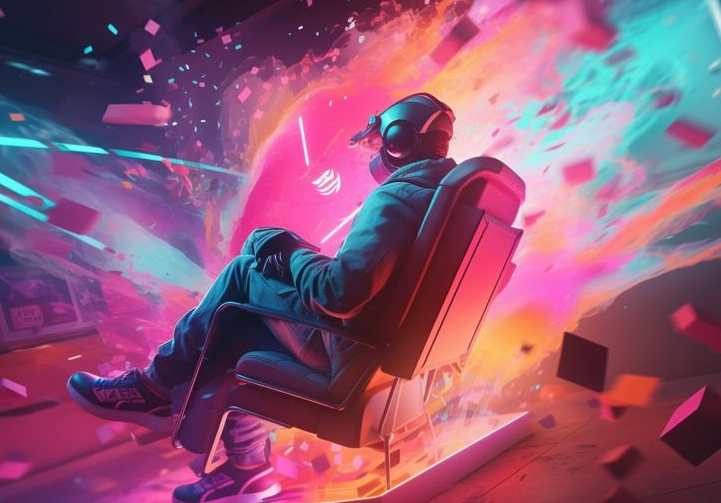Imagine a world where machines build entire gambling empires without human hands. That’s the bold question Slotegrator, a key player in online gaming tech, just tackled in their latest report. They tested if artificial intelligence alone could start an online casino from scratch. The findings? A mix of promise and pitfalls that could reshape the industry. Stick around to see how far AI really goes.
Slotegrator’s Bold Experiment Revealed
Slotegrator dropped their report on October 9, 2025, sparking buzz in the gaming world. They asked a simple yet huge question: Can AI handle every step of launching an online casino? Their team used tools like ChatGPT and Grok to simulate the process, from planning to operations.
The report shows AI can cut costs and speed up tasks, but it falls short on legal and creative fronts. For instance, AI generated business plans and marketing ideas quickly. Yet, experts at Slotegrator found it couldn’t navigate complex regulations or secure real licenses on its own.
This investigation comes at a time when AI is popping up everywhere in business. Slotegrator, based in Eastern Europe, has been pushing tech boundaries in iGaming for years. Their probe isn’t just theory; they ran real tests to see what works.
One key takeaway? AI shines in data analysis and personalization, like tailoring games to players.

How AI Could Transform Casino Setup
Picture starting a casino with zero staff. Slotegrator’s report outlines a step-by-step plan using AI prompts. They tested creating website designs, game integrations, and even customer support bots.
In their trials, AI handled about 70% of the workflow efficiently, according to their internal data from 2025 experiments. That includes generating code for platforms and analyzing market trends. But human oversight remained crucial for accuracy.
AI’s strength lies in automation. For example, it can predict player behavior to boost engagement, a feature Slotegrator already embeds in their software.
Still, the report warns against full reliance. AI lacks the intuition for ethical decisions, like responsible gaming measures.
Here’s a quick breakdown of AI’s potential roles:
- Planning: Generates business models and budgets in minutes.
- Design: Creates logos and interfaces, though they need tweaks.
- Marketing: Crafts campaigns based on data trends.
- Operations: Automates fraud detection and player support.
This setup could slash startup costs by up to 50%, based on Slotegrator’s estimates from recent case studies.
The experiment highlighted real-world wins. One test saw AI build a mock casino site in hours, something that typically takes weeks.
Hurdles AI Faces in the Gaming World
Not everything is smooth sailing. Slotegrator’s investigation uncovered big roadblocks. AI can’t handle legal paperwork, like getting gambling licenses from bodies such as the Malta Gaming Authority. That requires human lawyers and real-world negotiations.
Security is another weak spot; AI-generated systems often miss advanced cyber threats. In their tests, simulated hacks exposed vulnerabilities that only experts could fix.
Data from a 2024 study by the International Gaming Research Unit backs this up. It found that while AI improves efficiency, human error rates drop when people oversee tech.
Costs add up too. Training AI models needs big investments, and errors could lead to hefty fines in regulated markets.
Slotegrator points out cultural nuances. AI struggles with region-specific preferences, like varying game tastes in Asia versus Europe.
Despite these issues, the report offers hope. Hybrid models, blending AI with human input, emerged as the sweet spot.
What This Means for the Future of iGaming
Looking ahead, Slotegrator predicts AI will evolve fast. By 2030, they estimate 80% of casino operations could run on smart tech, drawing from industry forecasts by firms like Statista.
This shift affects jobs too. Entry-level roles might shrink, but new ones in AI management could boom.
Players stand to gain from smarter, safer experiences. Think personalized bonuses that feel just right, reducing addiction risks.
Innovation doesn’t stop here. Slotegrator’s own AI module, launched earlier in 2025, lets operators compare metrics anonymously, fostering better decisions.
The big picture? AI pushes boundaries, but humans keep the wheel.
As AI creeps into everyday business, Slotegrator’s probe reminds us of tech’s double edge, blending excitement with caution. It sparks hope for streamlined gaming but warns against ditching human smarts. In a fast-changing world, this could make casinos more accessible, yet it raises questions about ethics and jobs.
Leave a Reply